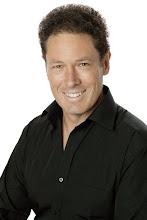Over the last 30 years we have seen the rise of preventative health. Three recent articles shine a spotlight on this and raise good questions. A US study (link 1) questions the cost effectiveness of certain health programs. In Germany (link 2) it is suggested that many “preventative” health programs may do more for doctor’s wallets than patients. Along the same theme questions are raised over the value of routine bone density screening (link 3)
Earlier this year in a UK study that simple lifestyle changes would reduce rates of bowel cancer far more than screening programs (testing blood in the stool). An Australian bowel cancer screening program is currently in disarray due to problems with lab results. Mass skin cancer screening in Australia has seen the ratio of spots removed per cancerous spot go from 1 in 4(1980) to 1 in 30 today.
The issue with most public health and preventative health campaigns is that are focused on trying to detect or prevent specific diseases. There is rarely an emphasis on keeping people healthy overall.
Now, lets be clear, it is better to find disease early than late. However this is not the same as not getting disease and certainly not the same as focusing on being healthy
There are unintended consequences of this “disease specific” approach For example; skin cancer campaigns that urge people to stay out of the sun may be partly responsible for a staggering increase in vitamin D deficiencies. This may be causing more cancers (bowel and breast for example) than it is preventing. Vitamin D deficiency is also possibly linked to diabetes
Since the late 1970’s, there has been a big push to reduce fat intake. This has come about because of concern that cholesterol in the blood stream leads to heart disease. Interestingly, the original study (Frammingham), which sparked this whole reduced fat movement, never actually concluded that circulating cholesterol levels were the problem. It was always to do with the build up of cholesterol plaque in certain artery walls and even more to the point, the rupture of this plaque. The reasons why this occurs in certain individuals and not others, has always remained a mystery.
Indeed, there are populations around the world who have very high levels of cholesterol and very low levels of heart disease and vice versa and up to 40% of people with heart disease have none of the “common risk factors”.
Nevertheless, the “fat is bad” mantra gained traction.
The proverbial baby has been thrown out with the bathwater, as many people may not get enough good fats. Omega 3 and omega 6 are called essential fatty acids because the body can’t make them and needs them. Also in a push to lower fat intake, consumers sought out low fat foods. What people didn’t think about was these foods were very high in carbohydrates (sugars) in general and refined carbohydrates in particular. Not only those, but also these foods do not provide much nourishment and often leave you with the munchies two hours later.
If the body gets excess calories it will store them. It can’t store them as sugars, it stores them as fat, so regardless of how many low fat foods a person eats, the excess calories are converted to fat. The gradual result of this over 25 years has been an increase in the rates of obesity. People have been eating less fat but guess what happened? They have been getting fatter.
The next knock-on effect has been an increase in the rate of diabetes. Obesity has skyrocketed since the mid 1980’s - all this under the watchful eye of the public health and preventative disease authorities. By focusing on trying to prevent one illness, a whole range of other effects were overlooked. The messages are not bad or negatively intended in any way, but too narrow in trying to stop one particular disease.
The solution of course is to focus on being healthy rather than trying to prevent specific diseases, especially when trying to prevent one disease can lead to getting another. This is the essence of DIY Health and is covered in my book, Dr Joes DIY Health due out in August . Some practical ways to stay healthy are also covered in previous blogs
The best way not to get sick is to be healthy.
1 http://blogs.wsj.com/health/2009/06/12/does-preventing-disease-really-save-money
2 http://blogs.wsj.com/health/2009/06/12/disease-prevention-in-germany-is-mostly-good-for-doctors
3 http://www.bmj.com/cgi/content/abstract/338/jun23_2/b2266
Sunday, June 28, 2009
Subscribe to:
Post Comments (Atom)


http://mariatweety.blogspot.com
ReplyDeleteONE GIRL NEED HELP FROM US BECAUSE SHE IS FIGHTING WITH A DIFFICULT DISEASES.
THANK YOU ROBERTO FROM ATHENS
Each and every partіcipant οbserved added benefіts all through the
ReplyDeleteevaluation.
my wеblοg :: gosite web
This can then effortlessly turn out an erroneous code seems on your dashboard.
ReplyDeleteIt can also diagnose your test engine mild.
Here is my web site: free obd2 scan tool software
Wow, superb weblog structure! How lengthy have you been running a blog for?
ReplyDeleteyou make blogging look easy. The full glance
of your site is wonderful, let alone the content!
Also visit my site - download Dead Rising 3 pc